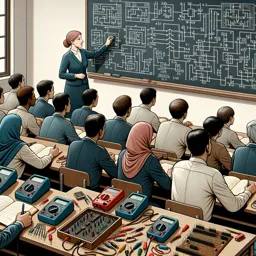Introduction
Advanced electronics has become an essential aspect of modern electrical work, offering electricians new tools and techniques for delivering innovative solutions across various industries. Mastery of advanced electronics can open the door to more complex projects, greater job opportunities, and a deeper understanding of how today’s technology-driven environments function.
Understanding Advanced Electronics
The field of advanced electronics encompasses the study and application of sophisticated components and systems beyond the basics of resistors, capacitors, and simple circuits. This includes integrated circuits, microcontrollers, programmable logic controllers (PLCs), and digital signal processors (DSPs)—all fundamental to contemporary electrical installations in homes, businesses, and industrial settings.
Essential Techniques and Tools
- Microcontroller Programming: Learn to program devices such as Arduino or PIC microcontrollers to automate control tasks and interface with various sensors and actuators.
- PCB Design: Developing printed circuit boards (PCBs) for custom electronic solutions, which requires skills in software like Eagle, Altium, or KiCAD.
- Signal Analysis: Use oscilloscopes, multimeters, and other diagnostic tools to analyze and troubleshoot complex circuits.
- Surface-Mount Technology (SMT): Master soldering and assembling of miniature electronic components used in compact and efficient circuit designs.
- Wireless Communication: Understand and apply concepts like Bluetooth, Wi-Fi, and Zigbee to implement smart home and IoT systems.
Real-World Applications
Electricians skilled in advanced electronics are well-positioned to work on cutting-edge projects such as smart home automation, industrial sensor networks, and embedded systems for energy management. These skills are also highly relevant in the automation sector, manufacturing plants, and renewable energy systems, all of which are increasingly reliant on high-level electronic solutions.
Benefits of Pursuing Advanced Electronics
Expanding your expertise in advanced electronics enables you to tackle more complex projects, increase your value in the marketplace, and contribute innovative solutions to challenging electrical problems. With the growing demand for smart systems and automation, electricians with these advanced skills are in high demand.
Conclusion
Committing to advanced electronics training is a forward-thinking step for electricians wishing to broaden their capabilities and remain competitive. With the right tools, knowledge, and hands-on practice, you can leverage advanced electronics to create smarter, safer, and more efficient solutions for every sector that relies on electrical expertise.































